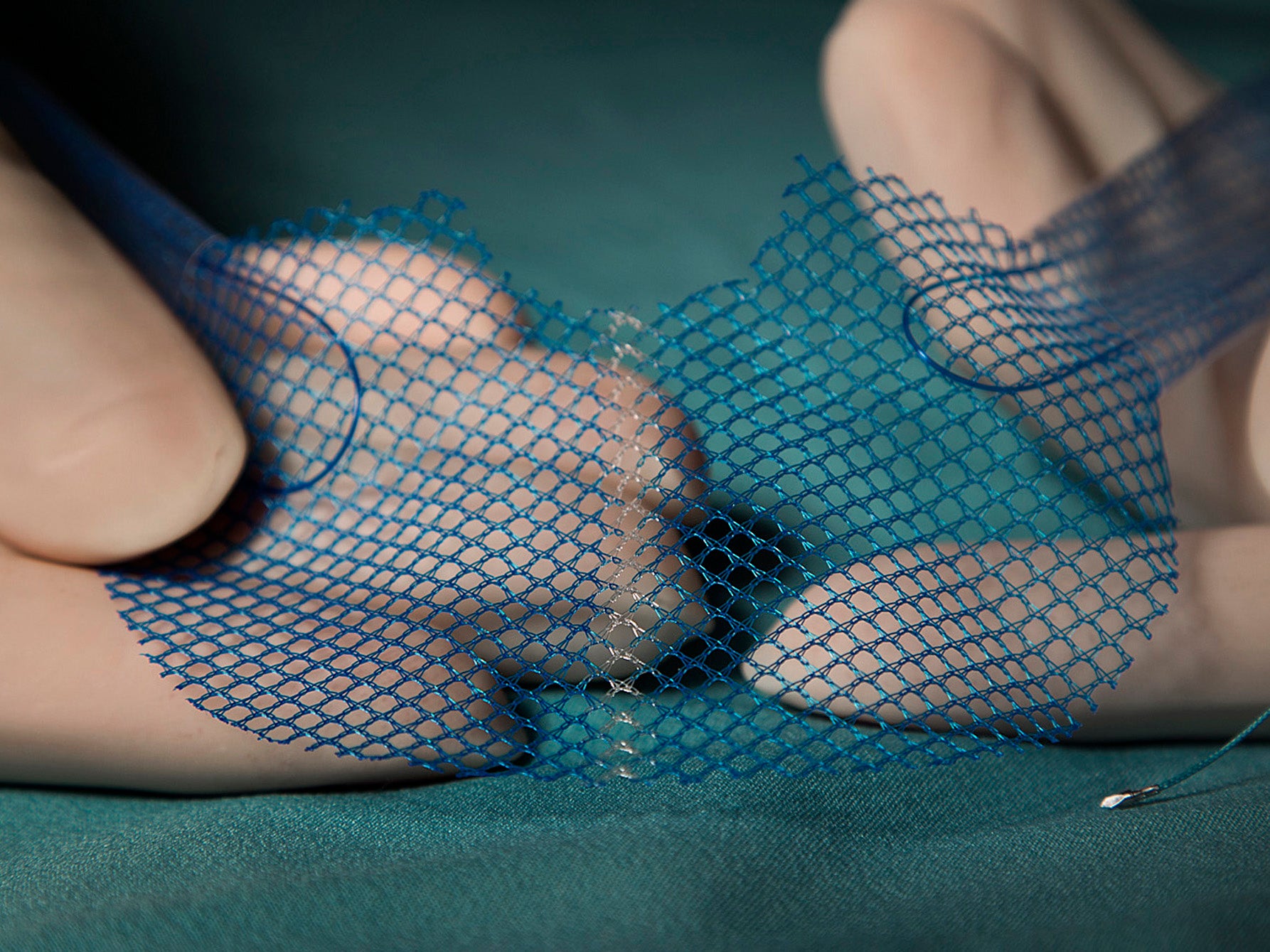NHS spending hundreds of millions on care for women with vaginal mesh implants which can cause 'horrifying' complications
Health minister vows to do better after at least £245m spent on follow-up care for women ‘left with debilitating, life-changing injuries’

The NHS spent “at least” £245m on follow-up hospital appointments and aftercare for women who have had vaginal mesh implants, which can cause “horrific” complications.
An analysis by academics at the Oxford University Centre for Evidence Based Medicine (CEBM) concluded that the true costs, when accounting for lost quality of life, was likely to be far higher.
At a Commons debate on the impacts of mesh this week, MPs shared accounts from constituents about the implants, used to treat incontinence and organ prolapse, which can deform and cut into the flesh, causing agony and permanent disability.
Health minister Jackie Doyle-Price said the cases raised were “horrifying”, adding that she had serious concerns that women being offered the procedure were not given adequate information about risks, or alternative treatments that might have been more suitable.
While she said that a full public inquiry on the extent of complications from implants would be “inappropriate”, she explained that the government is looking at its response as part of a wider review.
Ms Doyle-Price added the government is “determined to do its best for women who have been badly treated in having this procedure”.
The details of an NHS audit of mesh procedures released this week showed 127,500 women have been operated on in a nine- year period. But hundreds a year are having subsequent procedures to remove implants.
Mesh campaigners said the data published by the NHS was selective and didn’t show the full extent of the problem.
Analysis of the data by Professor Carl Heneghan, director of the CEBM, found that despite these gaps – which do not include information on GP appointments or care – mesh implants are already causing significant cost.
“The costs to the NHS are considerable, despite the fact that the costs we have outlined underestimate the true costs to the NHS,” he wrote.
“Approximately 127,500 women were operated on over a nine-year period, and in the following nine years these women required about 1.35 million outpatient appointments that cost the NHS a minimum of £245m.”
As there is no information on how their quality of life has changed, or any long-term impacts on life expectancy, he said the true cost to these women can’t be estimated.
“The report does, however, tell us that the long-term complications persist and likely worsen over time,” he added.
In the Commons debate earlier this week, Labour MP Emma Hardy recounted the case of her constituent, Angie, who had previously been fit and active.
After a mesh operation following the birth of her twins and a hysterectomy operation,she is now “unable to work, in constant pain and suffering, cannot take part in sports and has problems sleeping”.
Carol Monaghan MP, from the Scottish Nationalist Party, said he constituent Karen had a mesh implant in 2009 and this had to be removed in 2013.
“She has been left severely disabled, and now has to use a wheelchair when she travels long distances,” she said.
Ms Doyle-Price said: “The tragedy of this case is that women have put their trust in the medical establishment to look after them and to make them well, and they have come out with the most debilitating, life-changing injuries.
“In many cases, these were very young women. It is very clear from the clinical guidance on these products that they should not be used as a first intervention, and should be used only in very extreme cases. We are to be very concerned about the extent to which this has been adopted.”
A recent guideline change said mesh implants should not be routinely used, but campaigners are pushing for a total ban.
Join our commenting forum
Join thought-provoking conversations, follow other Independent readers and see their replies
Comments
Bookmark popover
Removed from bookmarks